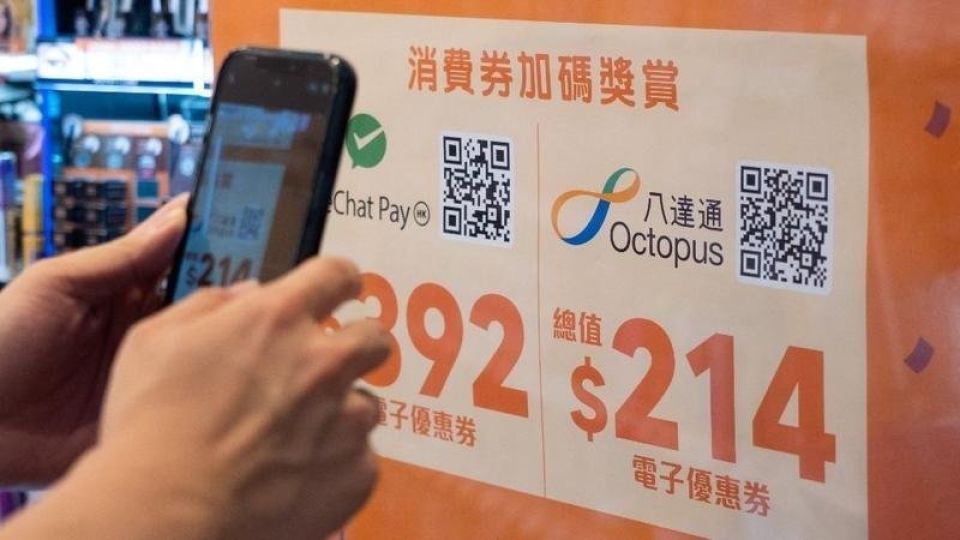February 3, 2023
HONG KONG – The Hong Kong General Chamber of Commerce called for another round of HK$5,000 ($638) consumption vouchers to raise public confidence and stimulate the economy as the city’s economic recovery remains fragile.
HKGCC on Thursday submitted its proposals to the Hong Kong SAR government for the financial secretary’s upcoming Budget 2023-24 which will be unveiled on Feb 22.
“We need the booster. It is like someone who has been sick for a long time and just recently recovered, you need to continue the medicine in order to help the person to recover fully,” said Agnes Chan, deputy chairman at HKGCC, a business chamber representing multinational companies in Hong Kong.
Agnes Chan, deputy chairman at HKGCC, estimates the disbursement of HK$5,000 consumption vouchers would cost the government HK$32 billion, compared to its fiscal reserves of HK$800 billion
Chan estimates the disbursement of HK$5,000 consumption vouchers would cost the government HK$32 billion, compared to its fiscal reserves of HK$800 billion. “This will definitively help and it will bring other positive effects as well for other industries. But we are not anticipating the disbursement of consumption vouchers will become a recurrent measure in the government’s budget.”
Besides the consumption voucher recommendation, HKGCC suggests other short-term measures such as providing rent/rate rebates, extending the Principal Payment Holiday Scheme and the SME Financing Guarantee Scheme, and providing 100 percent rebate on profits and salaries tax with a raised cap of HK$20,000 to HK$25,000.
The business chamber also urged the government to address labor shortages, especially among middle-ranked managers.
HKGCC Chief Executive Officer George Leung proposed that the government upgrade the skills of middle-ranked managers and consider importing low-skilled labor for certain industries.
Concrete measures that were proposed include introducing tax relief and granting subsidies to working mothers; providing retraining subsidies to address specific talent shortfalls; introducing a special labor importation scheme for elderly care, healthcare, construction, technology, and retail industry; and improving working conditions or retraining of women and older workers to promote labor participation.
Besides luring talent, HKGCC urged the government to attract more companies to set up regional headquarters in Hong Kong by providing conditional preferential tax rates.
The government should also mull attracting leading enterprises from other sectors, beyond the sectors of life and health technology, artificial intelligence and data science, financial technology, as well as advanced manufacturing and new energy technology industries, to establish a substantial presence and conduct core income generating activities in Hong Kong, HKGCC said.


